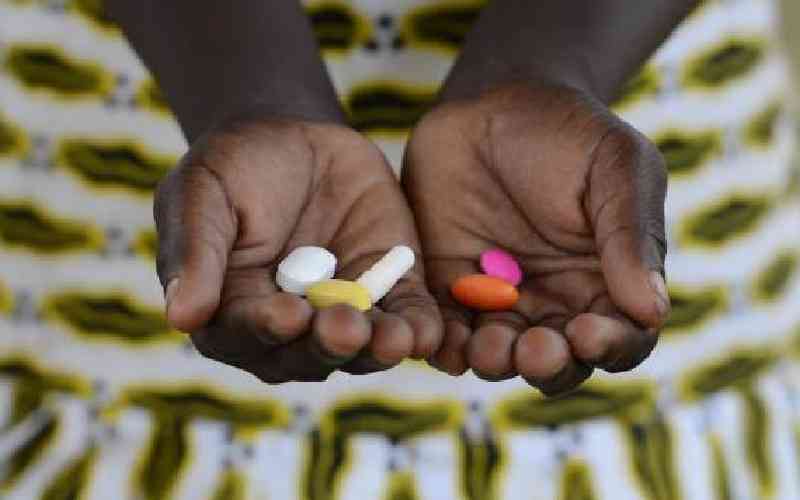Antimicrobial resistance leading cause of death, scientists warn
Health & Science
By
Gardy Chacha
| Oct 13, 2024

The deadliest diseases in Africa thus far have been malaria, Tuberculosis (TB) and HIV/AIDS. But today, there is a new scourge that has overtaken them all.
Antimicrobial resistance (AMR) is now responsible for 27.3 deaths per 100,000 -exceeding the combined death toll from the three diseases. This is according to a report released recently by Africa CDC.
Speaking last week at the World One Health Congress (WOHC) in Cape Town, South Africa, Dr Yewande Alimi, the One Health Unit Lead at Africa CDC said.
READ MORE
Reduced incomes, cash-starved private sector strain economy
KCB clocks Sh53.2b in green loans as climate finance race hots up
Safaricom profit jumps 7.2pc as total earnings now hit Sh388.7b
Proposed taxes to hit smallholder farmers hard, lobby warns
Government leases four sugar factories, to pay Sh. 6 billion to farmers
Safaricom net income jumps 10.8pc to Sh69.8bn, first in East and Central Africa
Motor industry registers drop as cash strapped businesses, households stay away
Stanbic reports Sh3.3 billion first quarter net profit
Businesses petition government over new waste management levy
"The rise in AMR will mean that on average patients will experience longer stays in hospital because the infections cannot be treated".
Africa CDC is the Africa Union's foremost public health institution.
Explaining what the revelations mean, Dr Alimi added, "It also means that for farmers who keep livestock, there won't be many drugs to treat livestock - and other animals - successfully".
Before the discovery of antibiotics about a hundred years ago, doctors could do nothing much to heal people from infections other than wait and hope.
In 1928, penicillin was discovered by Scottish physician, Alexander Fleming. This drug had a unique ability to kill a wide range of harmful bacteria, such as streptococcus, meningococcus and diphtheria bacillus. The discovery is still viewed as a scientific milestone.
By the 1940s, penicillin was being used to cure once-deadly diseases. Newer antibiotics would later be discovered and mass-produced.
Antibiotics are chemical compounds produced by microorganisms that are capable of killing, or inhibiting some other microorganisms.
World Health Organisation (WHO) estimates that the introduction of antibiotics in healthcare increased life expectancy by 23 years.
Less responsive
However, experts fear that the emergence and re-emergence of Antimicrobial Resistance (AMR), could potentially revert us to that era before the discovery of antibiotics.
"AMR is a natural phenomenon in science where pathogens develop protection, and become less responsive to available drugs that have hitherto been effective," Alimi said during a side interview at WOHC.
WHO estimates that bacterial AMR was directly responsible for 1.27 million global deaths, and contributed to 4.95 million deaths, in 2019.
Although AMR is a natural process, it has been accelerated by several human activities.
Major drivers of AMR in Africa include overuse and misuse of antimicrobials in human and food systems, migration, suboptimal vaccination rates, and environmental contamination from hospital and pharmaceutical effluents.
According to the Africa CDC report, Africa is already leading in AMR deaths. In 2019, AMR was responsible for approximately 255,000 deaths in the continent, accounting for 22 per cent of the global AMR burden.
The situation is expected to worsen with projections indicating that by 2050 AMR -associated deaths in the continent could reach 4.1 million per year.
"There is something that everyone can do to slow down AMR," says Alimi.
"Before you buy antibiotics over the counter and use them, is it necessary?"
A world where there are no drugs that can be relied upon to kill infection-causing pathogens will make it difficult for doctors to perform surgery: which is something to think about considering that in the modern world, many a birth is done via caesarean section operations.
This story was produced with the support of the Internews' Earth Journalism Network

